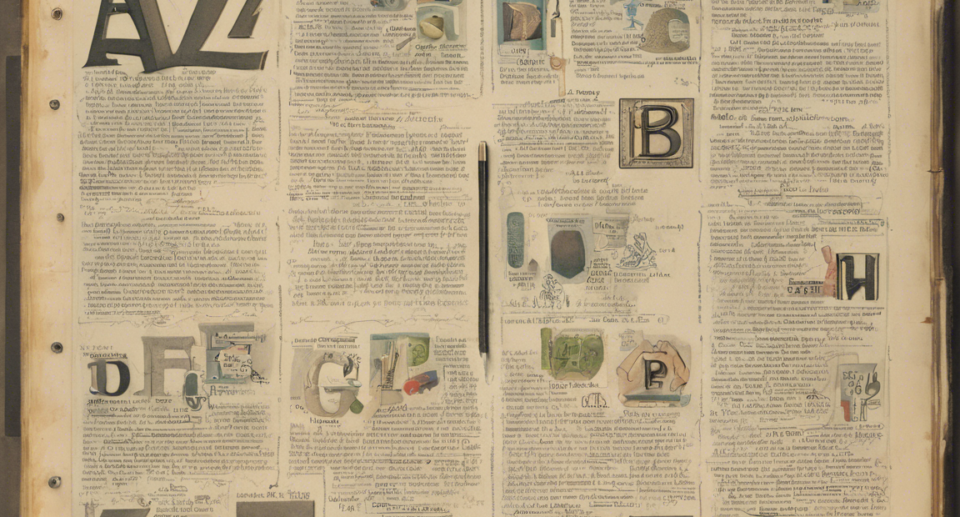Unlocking the A to Z Tablet Uses: Your Comprehensive Guide

Tablets have become an integral part of our daily lives, offering a wide range of functions and capabilities that cater to various needs. From entertainment to productivity, from education to communication, tablets have transformed the way we interact with technology. In this comprehensive guide, we will explore the A to Z tablet uses, covering everything from basic functions to advanced features that you may not have known about.
Getting Started with Tablets
What is a Tablet?
A tablet is a portable, touchscreen device that typically features a larger screen than a smartphone. It is designed to be held in the hands and operated primarily by touch, utilizing apps and software to perform a wide range of tasks.
How do Tablets Work?
Tablets are powered by operating systems such as iOS, Android, or Windows, which provide the platform for running applications and managing the device’s functions. Users interact with tablets through the touchscreen interface, tapping, swiping, and typing as needed.
What are the Basic Functions of a Tablet?
-
Web Browsing: Tablets allow users to surf the internet, access websites, and engage in online activities such as shopping or social media.
-
Email: Users can set up email accounts on their tablets to send and receive messages conveniently.
-
Media Consumption: Tablets are excellent devices for watching videos, listening to music, reading books, and viewing photos.
Tablet Uses for Education
Tablets have revolutionized the way we learn and teach. They offer a plethora of educational resources and tools that cater to students, educators, and lifelong learners alike.
E-Learning Platforms
Online courses, e-books, educational apps, and video tutorials make learning more accessible and engaging through tablets. Students can access a world of knowledge right at their fingertips.
Note-Taking and Organization
Tablets enable students to take notes, create to-do lists, set reminders, and organize their study materials efficiently. Apps like Evernote and Microsoft OneNote are popular choices for digital note-taking.
Interactive Learning
Tablets support interactive learning experiences through educational games, simulations, virtual labs, and multimedia content. These tools make learning more immersive and enjoyable for students of all ages.
Tablet Uses for Productivity
In the realm of productivity, tablets offer a versatile platform for staying organized, efficient, and connected to work-related tasks.
Work on the Go
Tablets provide a lightweight and portable alternative to laptops for professionals who need to work on the go. With powerful productivity apps like Microsoft Office, Google Drive, and Adobe Acrobat, users can create, edit, and share documents seamlessly.
Collaboration and Communication
Tablets facilitate collaboration among team members through video conferencing apps like Zoom and Microsoft Teams. Email, messaging, and file-sharing apps allow for seamless communication in a remote work environment.
Task Management
Task management apps like Trello, Asana, and Todoist help users stay organized, set priorities, and track progress on projects, whether for work or personal use.
Tablet Uses for Creativity
Creatives, artists, and designers can unleash their artistic potential with tablets that offer a range of tools and applications for digital creation.
Digital Art
Tablets with stylus support enable artists to create digital artwork, sketches, illustrations, and designs with precision and creativity. Apps like Procreate, Adobe Photoshop Sketch, and Autodesk SketchBook are popular choices for digital art.
Photography and Video Editing
Tablets can serve as portable editing studios for photographers and videographers, offering powerful editing tools and capabilities. Apps like Adobe Lightroom, VSCO, and LumaFusion bring professional editing features to the fingertips.
Music Production
Musicians and composers can use tablets for music production, recording, editing, and mixing. Apps like GarageBand and FL Studio Mobile offer a wide range of music creation tools and virtual instruments.
Tablet Uses for Entertainment
Tablets are versatile entertainment devices that offer a wide range of options for users to relax, unwind, and enjoy multimedia content.
Streaming Movies and TV Shows
With streaming services like Netflix, Hulu, and Disney+, users can watch their favorite movies, TV shows, and original content on their tablets anytime, anywhere.
Gaming
Tablets are popular gaming devices, offering a diverse selection of games from casual puzzles to immersive RPGs. Gaming accessories like controllers and styluses enhance the gaming experience on tablets.
E-Books and Reading
Tablets serve as e-readers, allowing users to access a vast library of e-books, magazines, newspapers, and digital publications. Apps like Kindle, Apple Books, and Google Play Books cater to avid readers.
Advanced Tablet Features
Multi-Tasking
Many tablets support multi-tasking features, allowing users to run multiple apps simultaneously, split-screen view, and switch between apps seamlessly for enhanced productivity.
Biometric Security
Tablets offer biometric security features such as Touch ID and Face ID for secure authentication and device unlock, keeping data and information protected.
Augmented Reality (AR) and Virtual Reality (VR)
Tablets with AR and VR capabilities provide immersive experiences for gaming, education, and entertainment, blurring the lines between the physical and digital worlds.
Frequently Asked Questions (FAQs)
1. Can tablets replace laptops for work?
Tablets can serve as a lightweight and portable alternative to laptops for basic work tasks. However, their capabilities may be limited for intensive tasks that require significant processing power and specialized software.
2. How do I choose the right tablet for my needs?
Consider factors such as operating system preference (iOS, Android, Windows), screen size, storage capacity, processing power, connectivity options, and intended use (e.g., productivity, entertainment, creativity) when selecting a tablet.
3. Are tablets suitable for gaming?
Tablets are suitable for gaming, offering a wide range of games from casual to high-performance titles. Users can enhance their gaming experience with accessories like controllers, styluses, and external keyboards.
4. How can I extend the battery life of my tablet?
To extend the battery life of your tablet, adjust screen brightness, disable background app refresh, close unused apps, enable power-saving mode, and avoid excessive multitasking or gaming.
5. Can tablets be used for professional digital art and design work?
Tablets with stylus support and creative software are suitable for professional digital art and design work, offering precision, versatility, and a range of tools to unleash creativity.
6. How important is storage capacity in a tablet?
Storage capacity is essential in a tablet to store apps, media files, documents, and downloads. Consider your storage needs and opt for a tablet with sufficient storage or expandable storage options.
7. Are there child-friendly tablets available for kids?
There are child-friendly tablets designed specifically for kids, offering parental controls, educational apps, age-appropriate content, and rugged designs to withstand rough handling.
8. Can tablets be used for remote learning and online education?
Tablets are ideal for remote learning and online education, providing access to e-learning platforms, digital textbooks, interactive lessons, video conferencing tools, and educational apps for students of all ages.
9. How secure are tablets for sensitive data and online transactions?
Tablets offer security features such as biometric authentication, encryption, secure browsing, and app permissions to safeguard sensitive data and ensure secure online transactions.
10. What are the advantages of using a tablet over a smartphone or laptop?
Tablets offer a larger screen size than smartphones for enhanced viewing and productivity, while being more portable and versatile than laptops, combining the benefits of both devices for a wide range of use cases.
In conclusion, tablets offer a diverse range of uses and functionalities that cater to various aspects of our lives, from education to productivity, creativity, and entertainment. By exploring the versatile features and capabilities of tablets, users can unlock the full potential of these portable devices and enhance their digital experiences.




